Cable Conductors
There are many materials capable of conducting electricity. Within cables, copper is most commonly used because of its high electrical conductivity, high malleability and relatively low cost. At Kalestead we typically use soft-annealed, pure, plain or tinned copper fine wires tested in accordance with BS4109. However, we also offer conductive plastics, aluminium, steel, nickel, silver, gold and various metal alloys as alternative materials. Of these, silver has the highest electrical conductivity (lowest resistivity) but is very expensive. Nickel or nickel-plated copper is often used in high temperature or corrosive environments.
Conductive, or semi-conductive, plastics are typically used in low-noise signal cables and for the dissipation of static charges.
Tinsel conductors consist of a copper or copper alloy foil wrapped around a textile core to provide lightweight communication cables with a very long flex life. They are not suitable for soldered terminations.
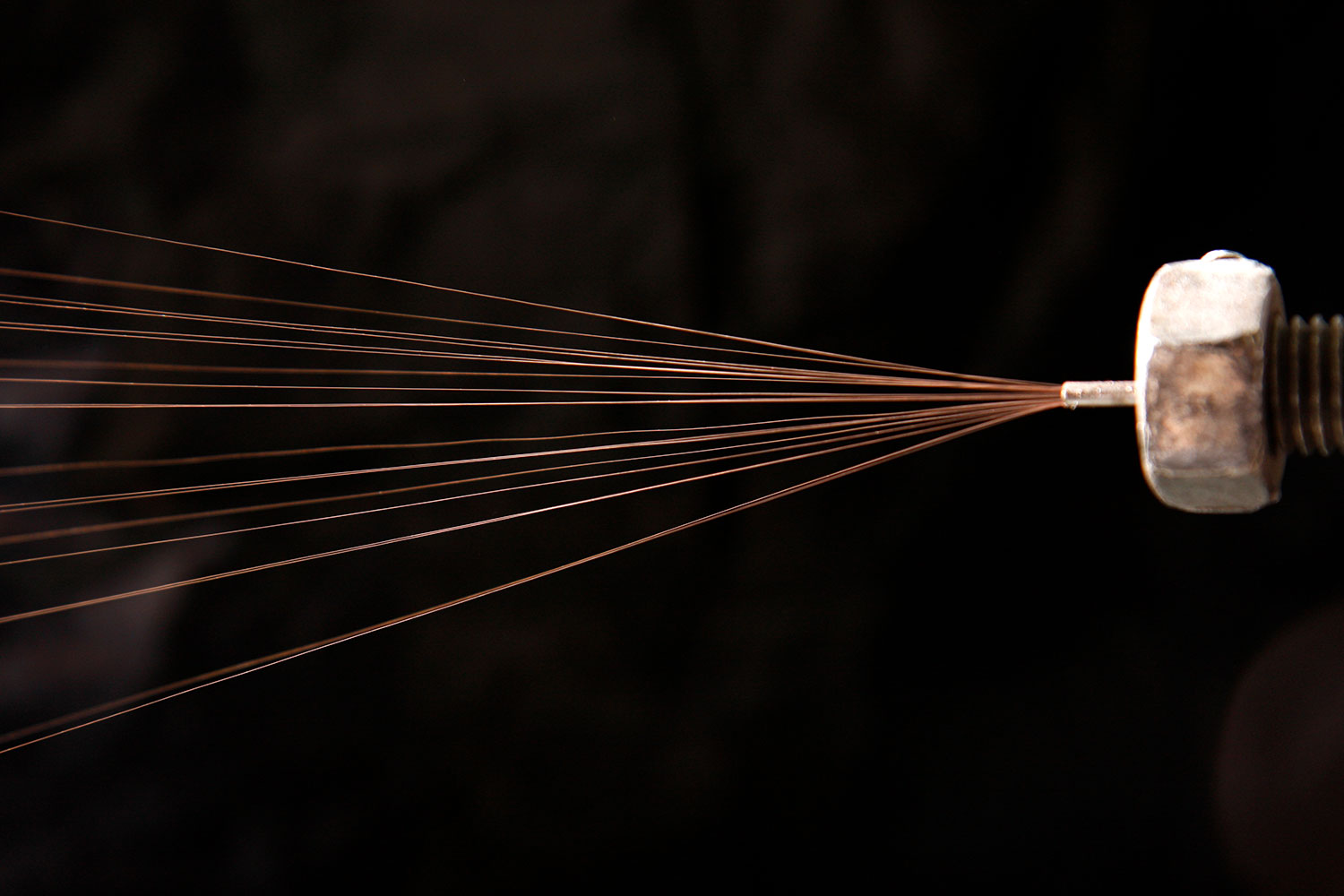
Choice of conductor
When considering the most suitable conductive material to use, it is important to look at the intended function of the cable. The properties of different conductors vary in terms of:
- Cost
- Strength
- Flexibility
- Conductivity (or resistivity)
- Solder robustness
- Heat exposure
- Chemical resistance
- Environment and oxidation
Applications
Examples of conductor applications include:
- Data and signal transmission
- Power transmission
- Temperature measurement
- Crimped terminations
- Soldered terminations
- Screening
- Grounding
- Static charge dissipation
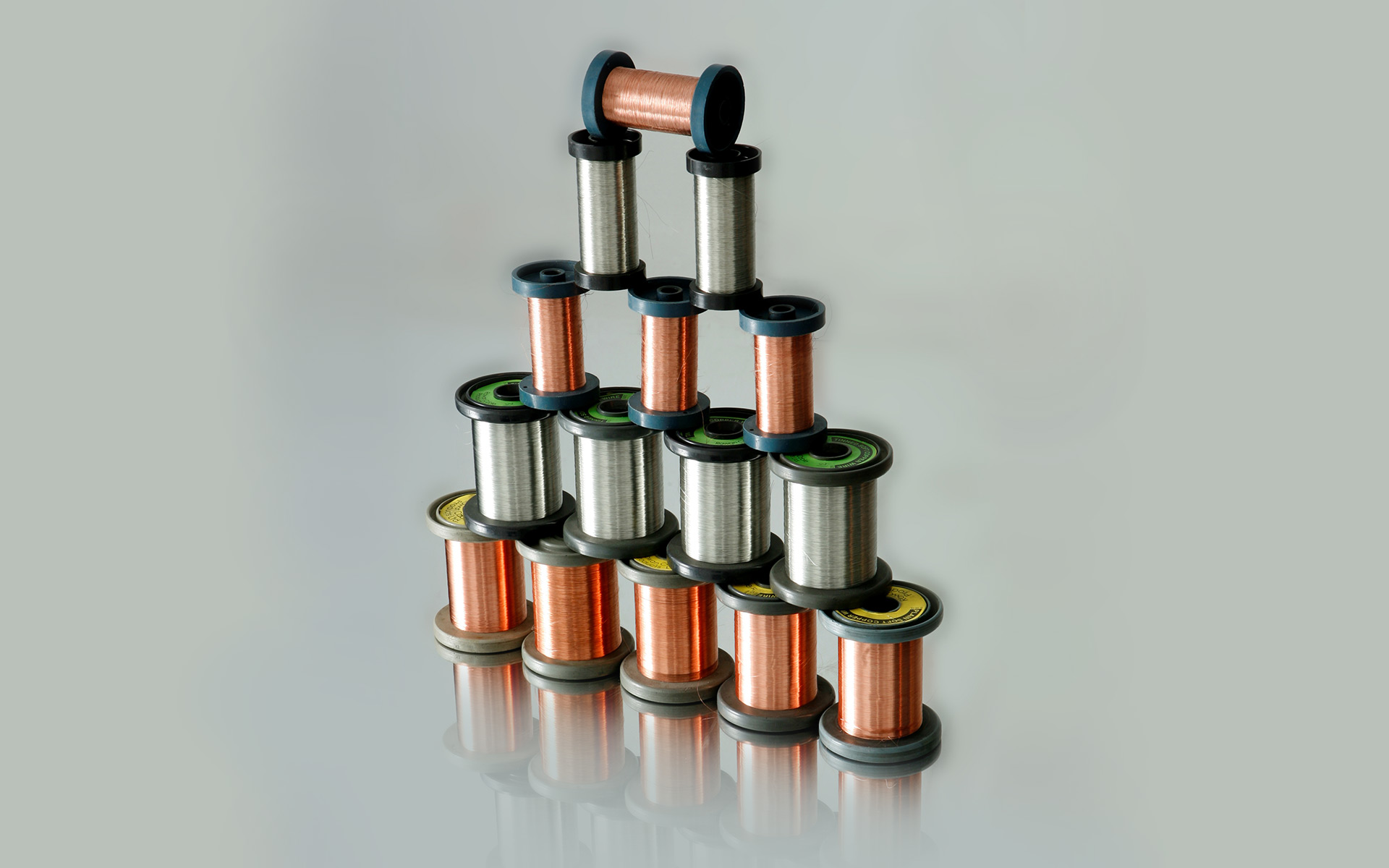
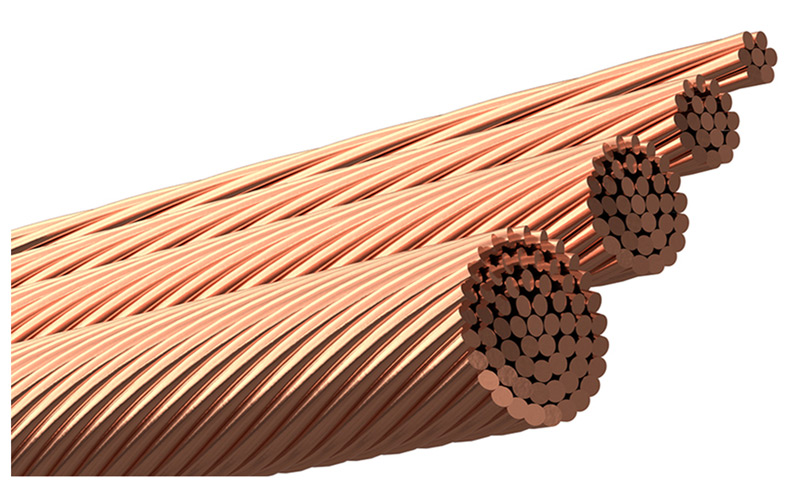
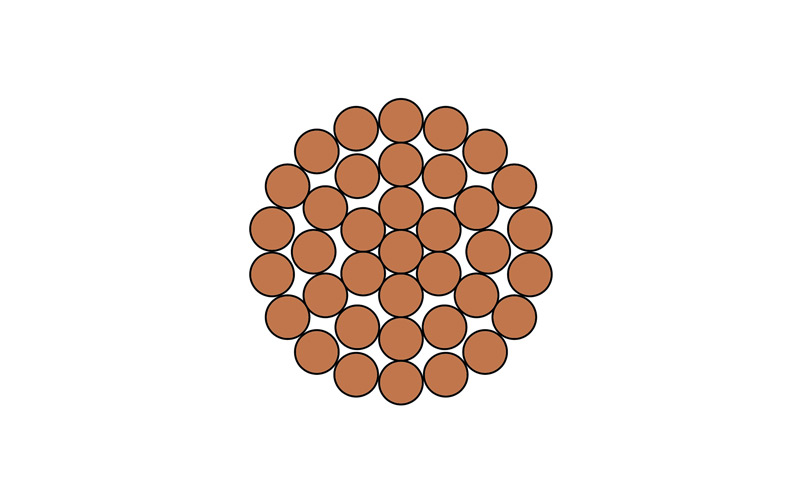
Limits to the level of electric current that can pass through a conductor
This depends on several factors. For example, the type of metal used, the temperature rating of the insulation over the conductor, whether the conductor is surrounded by other conductors or insulators, ambient temperature, etc.
In power cables we are frequently asked to provide as much current carrying capacity as possible in the smallest possible space. This reduces both size and cost and is why we offer high conductivity, oxygen-free copper conductors.
We have developed an impressive array of conductors to allow us to meet all our clients’ requirements.
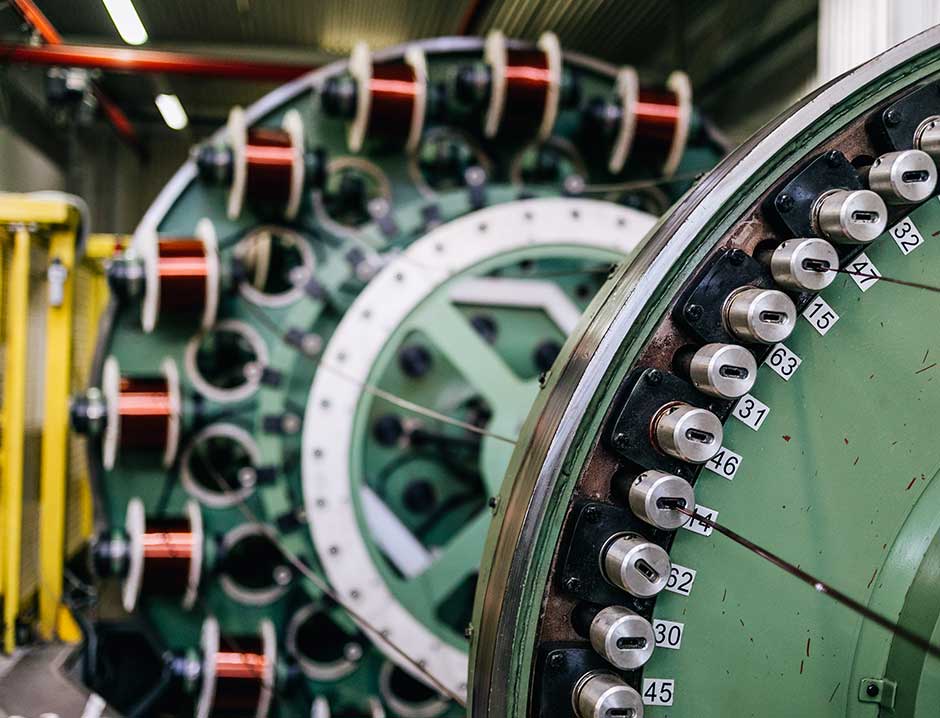
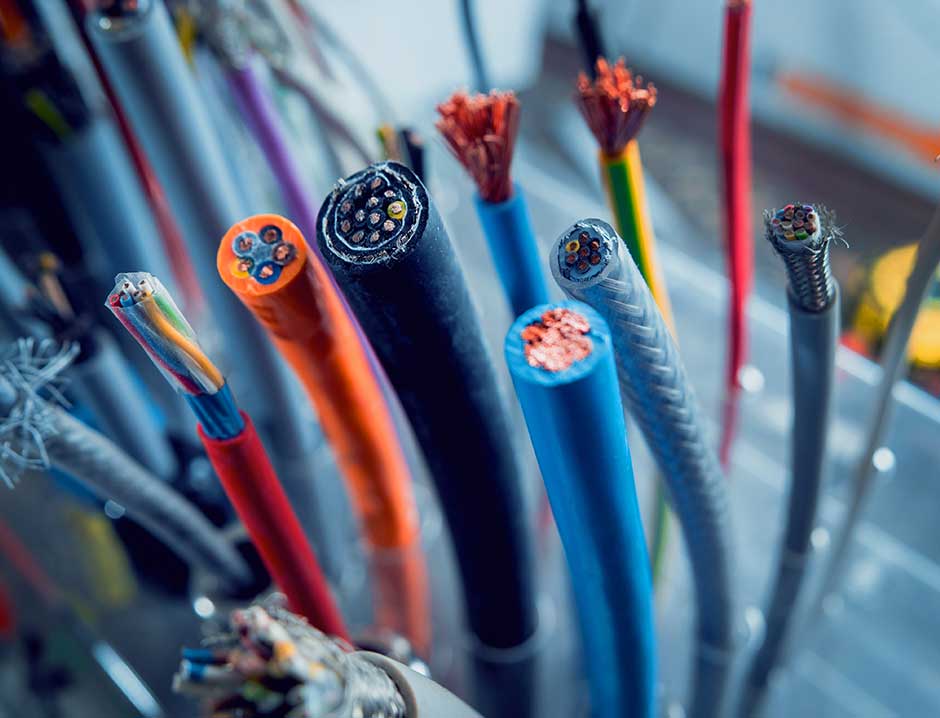
Conductors sizes
We offer ultra-miniature, very fine wire, stranded conductors from 0.014mm² up to beefy 10mm² stranded conductors.
Please see our wire chart which shows the most common wire sizes we are asked to make.
Versatility
In addition to our standard conductors, we have developed super-flexible conductors, suitable for high flex life cables and coiled cables. Our extensive range of multi-stranded conductors, in combination with our advanced thermoplastic coverings, means that our cables and coiled leads are extremely durable and capable of withstanding significant movement within a broad range of applications.
Contact us
If you have a project and require assistance, do not hesitate to contact us. A member of our team will be in touch.
